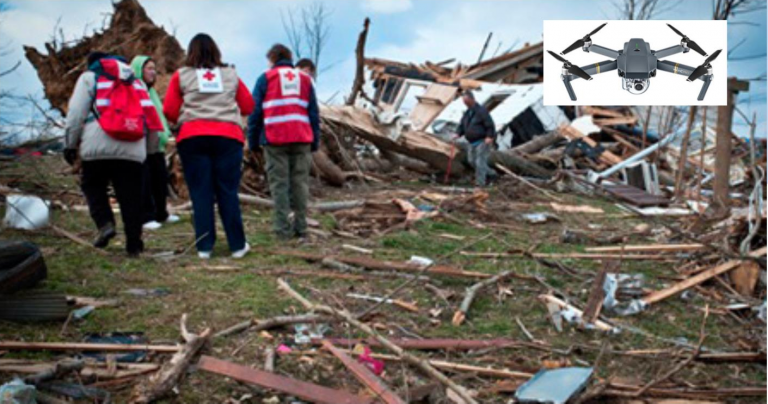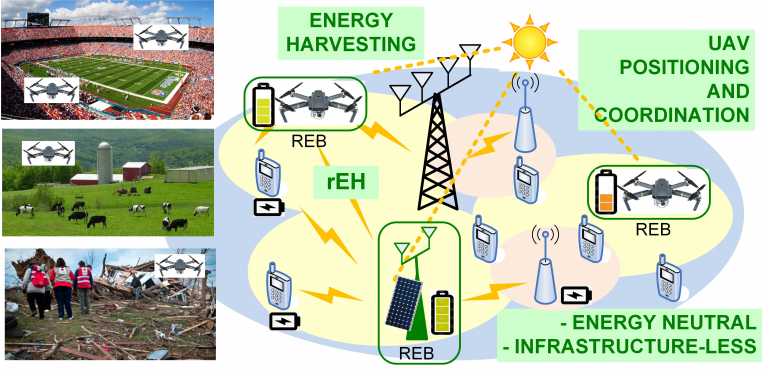UCL leads research for rural and disaster zone connectivity
3 July 2018
UCL leads €4.2m project to make wireless networks suitable for low power and difficult infrastructure situations.

Author Rob Thompson, Impact Fellow
 Wireless networks | Portable access points | green energy | Smart infrastructure
Wireless networks | Portable access points | green energy | Smart infrastructure
Christos Masouros Senior Lecturer in ICCS has recently been successful in leading a consortium to apply for European funding to research infrastructure-less networks for emergency and remote wireless networks that can be powered by green energy.
The project entitled PAINLESS - energy-autonomous Portable Access points for INfrastructure-LESS networks consortium is led by UCL, with ICCS researchers including Dr Masouros, Prof John Mitchell, and Prof Sarah Spurgeon. The total value of the project is €4.2m, with €650k directly allocated to UCL.
The explosive growth of applications and industrial sectors that rely on broadband connectivity, is set to stretch the demand for wireless networks beyond the reach of the power grid infrastructure. This increases the demand for energy efficient, or 'energy-autonomous' solutions. There is already demand for such solutions in remote and emergency use-cases.
Dr Masouros explained:
“Access points are being deployed on board of dronesAccess points that are deployed on board of drones, and portable network nodes that are energy-autonomous and operate detached from the power grid will become indispensable in the coming applications of wireless networks. Energy-autonomy presents immense challenges for the wireless network design and imposes a complete re-think of technological solutions.
The PAINLESS project will establish a training and research platform to pioneer green, energy-autonomous portable network nodes which are self-subsistent and limitlessly-scalable, to satisfy future demands with minimal infrastructure.

Dr Masouros went on to say:
“Our results will kick-start an innovation ecosystem for infrastructure and service providers of ICT to develop and commercialise a new generation of autonomous, sustainable and power-independent communication networks with self-organising functionality, to enable 100% coverage in urban environments in a power-efficient mannerWe hope our results will kick-start an innovation ecosystem for infrastructure and service providers of ICT to develop and commercialise a new generation of autonomous, sustainable and power-independent communication networks with self-organising functionality, to enable 100% coverage in urban environments in a power-efficient manner.
The direct applications of such technology are expected to impact on emergency, disaster and special events areas; and connect remote / developing areas with problematic infrastructure.
Other Partners in the project include: Nokia Bell Labs, Reseiwe , Lyra Electronics, Orion Technologies, RIO Systems, U. Manchester, Supelec, Athens Information Technology, Aalborg University and University of Cyprus.
 Close
Close

